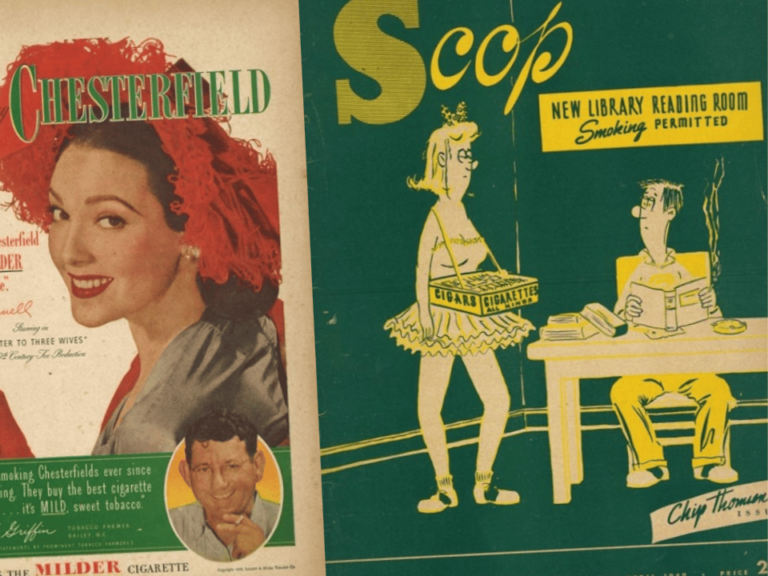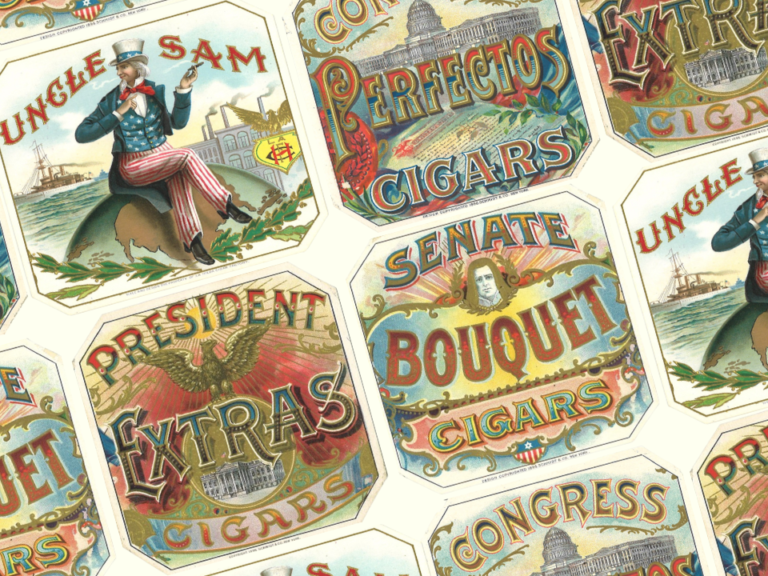New virtual exhibit looks at the life insurance industry’s complex history with tobacco
In a new online exhibition, The University of Alabama Center for the Study of Tobacco and Society examines the complicated relationship between life insurance and smoking.
The life insurance industry’s long, strange silence about smoking and cancer
By The Center for the Study of Tobacco and Society, Sept. 13, 2024
For nearly four decades from the mid-1920s to the early-1960s, the Metropolitan Life Insurance Company conducted a vigorous health promotion campaign in popular magazines to educate the public about preventing or reducing the risk for numerous diseases, including cancers, heart disease, diabetes, arthritis, obesity, anxiety, pneumonia, tuberculosis, and even syphilis. Yet in spite of the growing evidence implicating cigarette smoking as a major cause of the rise in lung cancer — and actuarial evidence by the 1950s of a significant difference in longevity between smokers and non-smokers — there was no mention of smoking in any of the company’s frequent ads and pamphlets on the facts about cancer.
Not until after publication of the Surgeon General’s Report on smoking and health in January 1964 did the insurance industry provide an incentive to lower the cost of life insurance premiums, led by State Mutual of Massachusetts, which offered the first nationally promoted non-smoker’s discount.
Read more on the Cancer History Project.
Related articles by the Center for the Study of Tobacco and Society
- Smoke rings: Tobacco and the Olympics, July 26, 2024
- Tabloids and tobacco: “TRICK CIGAR BLOWS MAN’S HEAD OFF”, April 18, 2024
- The boy who cried vape: Philip Morris International calls for a smoke-free world, Jan. 19, 2024
- How tobacco companies sold women a pack of lies, Nov. 2, 2023
- Like father, like son: How tobacco companies targeted families in the 20th century, June 8, 2023
- Coronations, cigarette companies, and cancer, May 5, 2023
- Exhibit: When cigarette filters were made of asbestos, April 13, 2023
- How a two-faced media covered cancer: Promoting research—and cigarettes, April 29, 2022










This column features the latest posts to the Cancer History Project by our growing list of contributors.
The Cancer History Project is a free, web-based, collaborative resource intended to mark the 50th anniversary of the National Cancer Act and designed to continue in perpetuity. The objective is to assemble a robust collection of historical documents and make them freely available.
Access to the Cancer History Project is open to the public at CancerHistoryProject.com. You can also follow us on Twitter at @CancerHistProj, or follow our podcast.
Is your institution a contributor to the Cancer History Project? Eligible institutions include cancer centers, advocacy groups, professional societies, pharmaceutical companies, and key organizations in oncology.
To apply to become a contributor, please contact admin@cancerhistoryproject.com.








